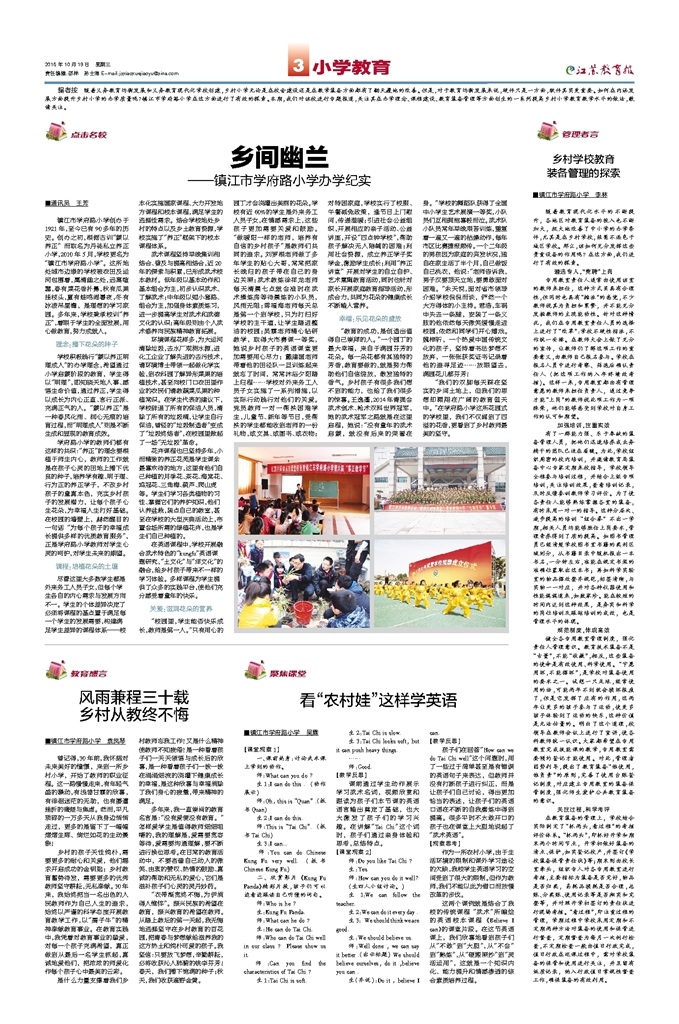内容详情
看“农村娃”这样学英语
■镇江市学府路小学 吴霖
【课堂观察1】
一、课前热身:讨论武术课上学到的动作。
师:What can you do ?
生1:I can do this . (动作展示)
师:Oh, this is “Quan” .(板书Quan)
生2:I can do this.
师:This is “Tai Chi”. (板书Tai Chi)
生3:I can...
师:You can do Chinese Kung Fu very well. (板书Chinese Kung Fu)
二、欣赏影片《Kung Fu Panda》精彩片段,孩子们可以边看边跟读自己听懂的词句。
师:Who is he ?
生:Kung Fu Panda.
师:What can he do ?
生:He can do Tai Chi.
师:Who can do Tai Chi well in our class ? Please show us it.
师:Can you find the characteristics of Tai Chi ?
生1:Tai Chi is soft.
生2:Tai Chi is slow.
生3:Tai Chi looks soft, but it can push heavy things.
……
师:Good.
【教学反思】
课前通过学生动作展示学习武术名词,视频欣赏和跟读为孩子们本节课的英语语言输出奠定了基础,也大大激发了孩子们的学习兴趣。在讲解“Tai Chi”这个词时,孩子们通过亲身体验和思考,总结特点。
【课堂观察2】
师:Do you like Tai Chi ?
生:Yes.
师:How can you do it well?
(生四人小组讨论。)
生1:We can follow the teacher.
生2:We can do it every day .
生3: We should think we are good.
生:We should believe us.
师:Well done , we can say it better .(出示标题) We should believe ourselves, do it ,believe you can .
生(齐说):Do it , believe I can.
【教学反思】
孩子们在回答“How can we do Tai Chi well”这个问题时,用了一些过于简单甚至是有错误的英语句子来表达,但教师并没有打断孩子进行纠正,而是让孩子们自己讨论,得出更加恰当的表述,让孩子们的英语口语在不断的自我磨练中得到提高。很多平时不太敢开口的孩子也在课堂上大胆地说起了“武术英语”。
【观察思考】
作为一所农村小学,由于生活环境的限制和课外学习途径的欠缺,我校学生英语学习的空间受到了很大的限制。但作为教师,我们不能以此为借口而放慢改革的步伐。
这两个课例就是结合了我校的传统课程 “武术”所编绘的英语校本课程《Believe I can》的课堂片段。在这节英语课上,我们欣喜地看到孩子们从“不敢”到“大胆”,从“不会”到“熟练”,从“硬搬照抄”到“灵活运用”,这就是一个知识内化、能力提升和情感渗透的综合素质培养过程。


